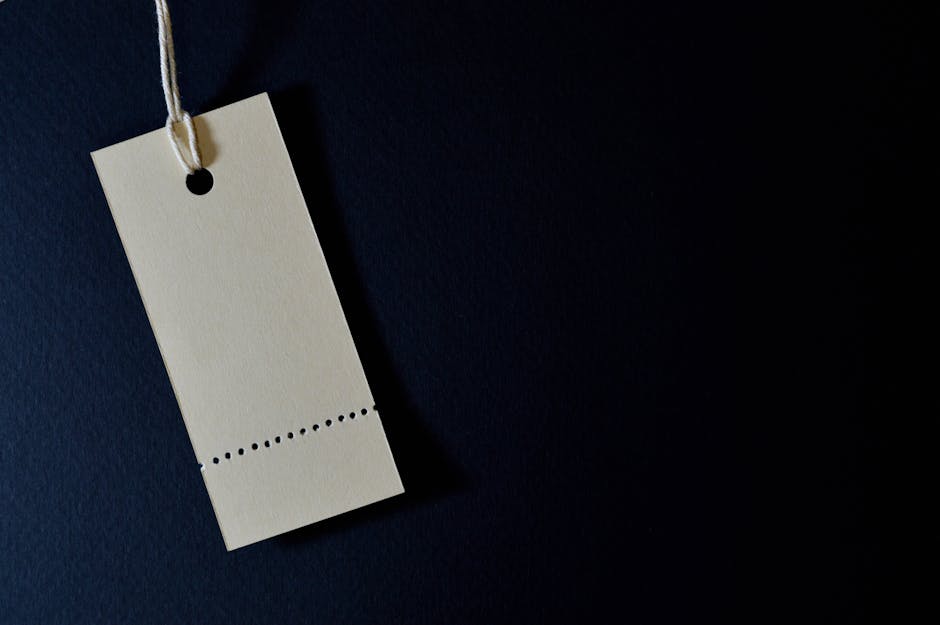

The only rescue method TikTok currently faces is through litigation, but the outcome is still uncertain. However, regardless of the result, persisting in the lawsuit is TikTok’s last effort to strive to remain in the U.S. market.
On May 7, local time in the United States, TikTok and its parent company ByteDance formally filed a lawsuit in the United States Court of Appeals for the District of Columbia Circuit, challenging the divestment bill recently signed into effect by U.S. President Biden targeting TikTok. This divestment order, officially named the Protecting Americans from Foreign Adversary Controlled Applications Act, requires ByteDance to sell TikTok within 180 days of the enactment of the bill, and its ownership must not exceed 20%, otherwise TikTok would be removed from app stores in the U.S. region. The bill was approved by the U.S. Senate on April 23, and the subsequent day Biden signed it into law.
In its complaint, TikTok fully presented its view for the first time, arguing that the bill violates the U.S. Constitution. The complaint claims that the so-called “qualified divestiture” is unachievable on commercial, technical, and legal levels and cannot be completed within the stipulated 270 days. Even the operatively feasible “conditional divestiture” fundamentally violates the freedoms of speech and personal liberty guaranteed by the U.S. Constitution. The complaint points out that if the court supports such a judgment, the government could decide which companies may no longer own or operate platforms with innovation and uniqueness. Congress, in the name of national security, could require any owner of a newspaper or website to sell their platform or risk closure, which clearly contravenes the original intent of the First Amendment to the Constitution.
In the statement made after the bill was signed by Biden, TikTok explicitly expressed its dissatisfaction with this unconstitutional law and declared that it would challenge it in court. CEO of TikTok, Zhou Shousen conveyed in a video that TikTok would continue to operate and had confidence in taking legal action against these restrictions. Zhou emphasized, “Please be assured, we are not going away. We are confident that we can fight for your rights in court.”
Legal experts analyze that litigation is currently TikTok’s only legal avenue. TikTok may apply to the court for a temporary restraining order to ensure that the court can declare the law invalid before the final sale deadline (January 19, 2025). Although the outcome of the litigation is uncertain, TikTok has shown a determined resolve to remain in the U.S. market.
In the complaint, TikTok presents four main arguments for appeal, namely:
- The bill violates the First Amendment to the U.S. Constitution;
- The bill is an act of depriving citizens of their rights;
- The bill violates the principle of equal protection that TikTok is entitled to under the Fifth Amendment to the U.S. Constitution;
- The bill violates the Takings Clause of the Fifth Amendment to the U.S. Constitution.
The First Amendment to the United States Constitution prohibits Congress from enacting any law that abridges freedom of speech. In this regard, TikTok has presented serious opposition, arguing that a certain law aims to limit a vast amount of constitutionally protected free speech by banning TikTok and all online platforms and software applications owned by its parent company, ByteDance.
TikTok not only provides a platform for users to publish news, commentary, and advertisements but its recommendation algorithms similarly involve the “exercise of editorial control and judgment,” which is also protected by the First Amendment to the U.S. Constitution. Historically, even on matters of national security, the U.S. Congress has always strived not to let legislation infringe upon the freedoms bestowed by the First Amendment.
For instance, with the “International Emergency Economic Powers Act” (IEEPA) of the United States, although the law grants the President extensive powers to deal with national security issues, an amended IEEPA ensures that presidential actions must not violate the import or export of “personal communications” or “informational materials” to avoid conflict with the First Amendment.
In the bill against TikTok, TikTok believes that Congress, by legislating to punish specific companies, violates constitutional rights and deprives citizens of rights. The bill specifically targets TikTok, stopping its operations in the U.S. without equivalent restrictions applied to other similar companies. Moreover, Congress did not offer TikTok more lenient restriction options or the opportunity to take corrective measures; instead, it directly stripped TikTok of its long-term business rights in the United States.
In fact, to address the U.S. government’s concerns about platform user data security and the risk of external forces influencing content, TikTok has already taken a number of measures. For example, it began cooperating with U.S. administrative departments as early as 2019 to assess and develop security plans and has established TikTok U.S. Data Security, which is overseen by a security officer appointed by the U.S. government.
In 2020, facing then-President Trump’s executive order to divest TikTok, the company invested heavily to initiate the “Texas Plan,” migrating data to domestic U.S. company Oracle’s servers to ensure data security. When negotiating with the Committee on Foreign Investment in the United States (CFIUS), TikTok also committed to accepting several safeguard measures to address potential breaches of agreement.
As of August 2022, TikTok submitted a detailed national security agreement proposal to CFIUS, outlining its plan to manage U.S. user data separately in collaboration with Oracle. However, after the proposal was submitted, CFIUS abruptly halted negotiations with TikTok without formal approval, and TikTok received no substantive response after repeatedly asking about the status of negotiations and plans to restart.
In March 2023, the Committee on Foreign Investment in the United States (CFIUS) indicated that ByteDance’s proposal to divest its U.S. operations was inadequate and therefore demanded it sell TikTok’s U.S. business. TikTok launched a legal protest, arguing that the government’s divestment requirements violated the principle of equal protection under the Fifth Amendment to the U.S. Constitution. The U.S. government labeled TikTok a “foreign adversary-controlled application” and imposed stringent restrictions. This approach is distinctly different from the classification of other “foreign adversary applications,” which requires two conditions: first, the application must be under foreign adversary control, and second, it must be identified by the U.S. President as a significant threat to U.S. national security. TikTok contends that historically, the U.S. Congress has not implemented a unique set of rules for specific technology platforms while adopting different rules for other platforms; therefore, the legislation’s differential treatment of TikTok deprives it of its right to equal protection under the law.
In addition, TikTok believes that this bill violates the “takings clause” mentioned in the Fifth Amendment of the Constitution. If the bill is enacted, TikTok will lose the property rights protected under this clause. Without a lawful divestiture, TikTok would have to shut down its operations in the United States. Even with a compliant asset divestiture, the amount received under the enforced sale conditions is likely to be far below its market value. Based on the aforementioned reasons, TikTok and its parent company ByteDance request the court to declare the bill unconstitutional and prevent it from taking effect.
Although TikTok’s litigation strategy matches external expectations, the challenges it faces remain daunting. U.S. legal scholar Sun Yuanzhao points out that this situation is different from the administrative order TikTok faced in 2020 because it involves legislation passed by Congress, which theoretically represents the will of the U.S. public. During the drafting of the law, participants included senior legal officials from the Biden administration, who left room in their wording that could possibly avoid constitutional challenges. Sun Yuanzhao believes that the outcome of the lawsuit is not predetermined.
If TikTok’s challenge to the bill fails, ByteDance will need to complete the divestiture of TikTok’s business in the United States by January 19, 2025. Regarding the prospects for TikTok and ByteDance’s success, Zhu Keliang, head of the Silicon Valley office of DeHeng Law Offices, suggests that of the four reasons TikTok has proposed, the invocation of the First Amendment of the U.S. Constitution will be the most persuasive. The other reasons are less likely to succeed. “If it can be proven that the forced sale is equivalent to a shutdown, it would infringe on the right to freedom of speech, leading the court to conduct strict scrutiny and possibly support TikTok,” further analyzed Zhu Keliang, who believes TikTok may quickly file for a temporary restraining order to have the court declare the law invalid before the final sale deadline. However, Sun Yuanzhao believes that the court might issue an injunction, but it’s not a certainty, as the executive branch has yet to take concrete action and TikTok has not yet suffered substantial harm.
The criteria for issuing an injunction involve multiple levels of core evidence requirements. First, the plaintiff must prove a significant likelihood of success on the merits of the case. Second, without the injunction, the plaintiff might suffer irreparable harm. The third point is that the interests of both parties must be weighed, ensuring that issuing an injunction is more in line with fairness and justice than not issuing one—considering the risks and responsibilities of the temporary invalidity of the law and choosing the more reasonable approach. Lastly, the issuance of an injunction must be in the public interest, which is to balance the economic interests of the users with national security considerations.
Expert Sun Yuanzhao notes that it is not easy to predict the likelihood of success, and at least until January 19, 2025, irreparable harm seems unlikely to occur. TikTok has a significant burden of proof to meet these stringent standards. Zhu Keliang also mentioned that aside from legal litigation, TikTok has virtually no other options.
According to analyses, TikTok users and American civil rights organizations might initiate new lawsuits, potentially accusing the U.S. government of infringing on freedom of speech. If a business suffers adverse law enforcement by federal authorities, under Rule 15 of the Federal Rules of Civil Procedure, the business can bring a lawsuit in federal district court. The uniqueness of the bill related to TikTok is that no administrative body has yet taken administrative actions against TikTok or caused any actual damage. Instead, there is anticipation of a potential injunction it might face by January 19, 2025.
Currently, what TikTok can do is only to challenge whether the relevant laws violate the constitution. The U.S. judicial system allows for one right of appeal, so it is highly likely that this case will be taken to the Supreme Court for review. The Supreme Court’s decision will set the tone for this case and affect whether TikTok can continue to operate in the U.S. market.
Sun Yuanzhao indicated that unless there are special circumstances, the litigation process is unlikely to conclude within half a year. The future evolution of the market in the coming years remains an unknown variable, and it’s uncertain whether TikTok will still hold a significant market share or remain popular by then. How to counterattack is clearly a critical test for TikTok.
[ad_2]







